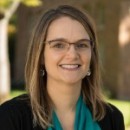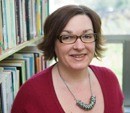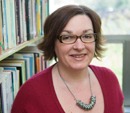Page 7 • (12,690 results in 0.044 seconds)
-
20 semester hours Students are expected to work closely with Innovation Studies faculty advisors to ensure the most personalized programs and instruction possible.
253.535.7595 www.plu.edu/innovation-studies halvormj@plu.edu Michael Halvorson, Ph.D., Director The Innovation Studies program focuses on nurturing and developing original thought, transformative ideas, and breakthrough products in a team-driven context. The minor combines PLU’s distinctive offerings in the liberal arts and the professional schools, as well as programming offered by the Benson Chair in Business and Economic History. The Innovation Studies minor is especially supportive of, and
-

Associate Professor of Anthropology | Gender, Sexuality, and Race Studies | nosakaaa@plu.edu | 253-535-7664 | Dr.
Chasiotis. "Parental Influence on Fertility Behavior of First Generation Turkish Immigrants in Germany." Journal of Immigrant and Minority Health Vol. 12(1), 2010: 60-67. "The M - Shaped Dilemma: Life Strategies and Fertility Trends among Working Women in Contemporary Japan." Ethnology Vol. 48(1), 2009: 21-38. "Coresidence and Geographic Dispersion of Adult Children and Their Mothers in Germany: Variation in Ethnicity, Gender, and Marital Status." Journal of the Society for the Anthropology of Europe
-
Originally Published 1996 Introduction Like other disciplines such as English and Sociology, Foreign Languages also have a history in the United States which is linked to the changing values of society as a whole. The discipline of foreign language teaching has evolved over the last…
than conversations about fashion. Finally, the forms of evaluation associated with these methods reflect gender biases; just as studies have revealed possible inequities in standardized tests, such as the SAT’s, so there are gender issues regarding both content and grammar to consider in foreign language testing. Linguistic Issues In teaching languages, the object of study itself raises many issues of gender. Feminist linguists have been active in researching and detailing these problems, and
-

Associate Professor of Sociology and Criminal Justice | Gender, Sexuality, and Race Studies | lutherke@plu.edu | 253-535-7593
Criminal Legal System (Palgrave Studies in Crime, Media and Culture) (Palgrave Macmillan 2018) : View Book Teaching Criminology at the Intersection: A how-to guide for teaching about gender, race, class and sexuality co-edited with Rebecca M. Hayes and Susan Caringella (Routledge 2014) : View Book
-
The language of instruction of all French/Francophone literature and film courses is English. No French is required if you enroll in the course at the 200 level.
literature and film. Special attention will be given to recent developments and cultural shifts within the Francophone context. The course aims to deepen students’ understanding of the dynamic nature of popular culture and its significance in shaping identities, communities, and global perspectives. It is an elective for the Global Studies major (Development and Social Justice concentration) and can count for the major in Gender, Sexuality, & Race Studies and the minor in Critical Race Studies. French
-
Women’s Studies Minor passed by faculty.
Women’s Studies Minor passed by faculty.
-
20 semester hours (a minimum of 12 semester hours of upper division) to include: HGST 200 (4) HIST 360 (4) Elective courses (12 semester hours, a minimum of 8 hours upper division) No more than 12
253.535.7312 www.plu.edu/hgst/minor/ marcusls@plu.edu Lisa Marcus, Ph.D., Director The Holocaust and Genocide Studies program is strongly grounded in PLU’s educational commitment to helping its students develop as global citizens, future leaders, and whole, richly informed persons. As the University’s statement on General Education notes, PLU offers an education not only in values, but in valuing, and asserts strongly that “life gains meaning when dedicated to a good larger than oneself.” Close
-

Professor of English | Gender, Sexuality, and Race Studies | marcusls@plu.edu | 253-535-7312 | Lisa Marcus joined the English department after completing a PhD in English at Rutgers University in 1995. She has been active in campus-wide diversity education and advocacy; she chaired the Gender, Sexuality, and Race Studies program for many years, and is a founding member of PLU’s Holocaust and Genocide Studies Program. She is deeply committed to first year education and regularly teaches a popular writing seminar on Banned Books for the First Year Experience Program. Her constellation of courses in the English department include: The Holocaust in the American Literary Imagination; American Literature 1914-45: Race, Sex, and War; Anne Frank as a Holocaust Icon; a senior seminar on History & Memory in US Slavery and Holocaust texts; an English Studies course on Gendered Literacy; Feminist Approaches to Literature; Women Writers and the Body Politic; and a first-year seminar on Holocaust Literature developed with Professor Rona Kaufman. Lisa also regularly teaches courses in the Holocaust and Genocide Studies and Gender, Sexuality, and Race Studies Programs. Her current research project is Snapshots of a Daughter: A Feminist Genealogy, a critical exploration of letters between Marcus’s mother and the poet Adrienne Rich, 1979-82. You can read a poem she published about visiting Auschwitz here. .
Lisa Marcus Professor of English Phone: 253-535-7312 Email: marcusls@plu.edu Office Location: Hauge Administration Building - 227-E Status:On Sabbatical Professional Biography Education Ph.D., Rutgers University, 1995 M.A., Rutgers University, 1989 B.A., University of Wisconsin-Madison, 1986 Areas of Emphasis or Expertise Sex, Gender, and the Holocaust The Holocaust in the American Literary Imagination Comparative Holocaust and Genocide Studies Feminist, Queer, and Cultural Studies Twentieth
-

Professor of English | Holocaust and Genocide Studies Programs | marcusls@plu.edu | 253-535-7312 | Lisa Marcus joined the English department after completing a PhD in English at Rutgers University in 1995. She has been active in campus-wide diversity education and advocacy; she chaired the Gender, Sexuality, and Race Studies program for many years, and is a founding member of PLU’s Holocaust and Genocide Studies Program. She is deeply committed to first year education and regularly teaches a popular writing seminar on Banned Books for the First Year Experience Program. Her constellation of courses in the English department include: The Holocaust in the American Literary Imagination; American Literature 1914-45: Race, Sex, and War; Anne Frank as a Holocaust Icon; a senior seminar on History & Memory in US Slavery and Holocaust texts; an English Studies course on Gendered Literacy; Feminist Approaches to Literature; Women Writers and the Body Politic; and a first-year seminar on Holocaust Literature developed with Professor Rona Kaufman. Lisa also regularly teaches courses in the Holocaust and Genocide Studies and Gender, Sexuality, and Race Studies Programs. Her current research project is Snapshots of a Daughter: A Feminist Genealogy, a critical exploration of letters between Marcus’s mother and the poet Adrienne Rich, 1979-82. You can read a poem she published about visiting Auschwitz here. .
Lisa Marcus Professor of English Phone: 253-535-7312 Email: marcusls@plu.edu Office Location: Hauge Administration Building - 227-E Status:On Sabbatical Professional Biography Education Ph.D., Rutgers University, 1995 M.A., Rutgers University, 1989 B.A., University of Wisconsin-Madison, 1986 Areas of Emphasis or Expertise Sex, Gender, and the Holocaust The Holocaust in the American Literary Imagination Comparative Holocaust and Genocide Studies Feminist, Queer, and Cultural Studies Twentieth
-
2021 Gender, Sexuality, and Race Studies Capstones Monday, May 24, 1:30-3:30 Emily Dean “Saving Lives: Making Alternative Birthing Methods Mainstream to Improve Black Maternal Health Outcomes” Mackenzie Kinsella “Untangling whiteness: The Impact of whiteness on Black Womxn in Academic Spaces” Abstract: This paper seeks to answer the questions: What is the role of a white researcher in the process of doing anti-racist work? How can one begin to divest themselves from whiteness in academic spaces
Do you have any feedback for us? If so, feel free to use our Feedback Form.


